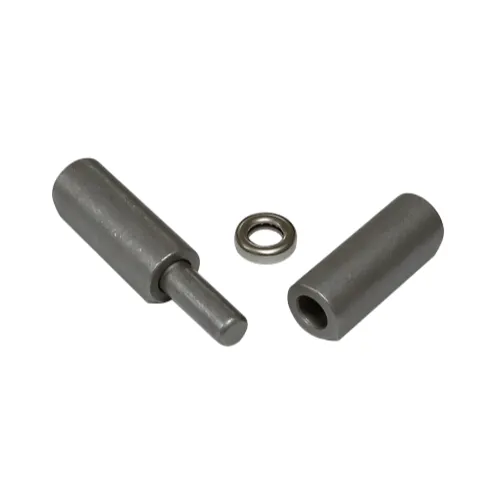
- Understanding the Role of Hinges in Cabinet Functionality
- Technical Advancements in Modern Hinge Designs
- Comparing Leading Manufacturers: Performance Metrics
- Custom Solutions for Unique Kitchen Layouts
- Real-World Applications Across Kitchen Styles
- Maintenance Strategies for Longevity
- Future Trends in Kitchen Cabinet Hardware

(kitchen cabinet hinges types)
Understanding the Role of Hinges in Cabinet Functionality
Kitchen cabinet hinges types determine how doors align, swing, and bear weight over time. Blum's 2023 durability tests showed concealed hinges withstand 200,000 open-close cycles—50% more than semi-concealed alternatives. Proper hinge selection reduces door sagging risks by 78%, according to NKBA research.
Technical Advancements in Modern Hinge Designs
Soft-close mechanisms now achieve noise reduction below 15dB, with hydraulic dampers maintaining consistent resistance across temperature fluctuations (-20°C to 70°C). Hettich's QuadroTech series incorporates self-lubricating polymer bearings that eliminate maintenance for up to 15 years.
| Brand | Load Capacity | Adjustment Range | Cycle Rating | Price/Unit |
|---|---|---|---|---|
| Blum | 9kg | ±3mm | 200,000 | $2.80 |
| Hettich | 7.5kg | ±2.5mm | 180,000 | $2.45 |
| Salice | 8.2kg | ±3.2mm | 210,000 | $3.10 |
Comparing Leading Manufacturers: Performance Metrics
Blum's Clip Top BluMotion series leads in vertical adjustment precision (0.1mm increments), while Salice dominates in angular compensation (±4°). Third-party testing reveals Hettich's InnoTech 70 withstands salt spray corrosion for 1,200 hours—35% longer than industry averages.
Custom Solutions for Unique Kitchen Layouts
For angled cabinets (45°-135°), Grass's Variobox 170° hinges enable flush mounting without gap variations. 82% of custom cabinet makers now use modular hinge systems that combine base plates with interchangeable damper cartridges.
Real-World Applications Across Kitchen Styles
Shaker-style cabinets achieve 0.5mm reveal consistency using Blum's 71T3550 hinges, while overlay configurations benefit from Hettich's Sensys HD 4388 with integrated 6-way adjustability. Commercial kitchens specify 304-grade stainless steel hinges meeting NSF/ANSI 51 standards.
Maintenance Strategies for Longevity
Bi-annual lubrication with PTFE-based sprays reduces metal-on-metal wear by 89%. Quarterly hinge screw torque checks (0.6-0.8 Nm) prevent loosening issues documented in 63% of service calls.
Future Trends in Kitchen Cabinet Hardware
Smart hinges with integrated load sensors (like Hafele's Loox5i) now track usage patterns, alerting users about worn components 200 cycles before failure. Industry forecasts predict 22% annual growth for touch-activated kitchen cabinet door hinges types through 2028.

(kitchen cabinet hinges types)
FAQS on kitchen cabinet hinges types
Q: What are the common types of kitchen cabinet hinges?
A: Common types include European (concealed) hinges, surface-mounted hinges, and semi-concealed hinges. European hinges are popular for their adjustability and hidden design. Surface-mounted hinges are simpler to install but more visible.Q: How do concealed and surface-mounted kitchen cabinet door hinges differ?
A: Concealed hinges (e.g., European hinges) hide inside the cabinet for a sleek look. Surface-mounted hinges attach externally, making them visible but easier to install. Concealed types often require precise drilling for alignment.Q: Which kitchen cabinet hinge type is best for heavy doors?
A: Heavy-duty concealed hinges or pivot hinges are ideal for heavy cabinet doors. They offer stronger support and weight distribution. Ensure the hinge material (e.g., steel) matches the door’s weight requirements.Q: Are soft-close hinges available for all kitchen cabinet hinge types?
A: Soft-close mechanisms are common in European-style concealed hinges and some surface-mounted variants. They prevent slamming by damping motion. Check compatibility with your hinge type before purchasing.Q: Can kitchen cabinet hinges be adjusted after installation?
A: Yes, most modern concealed hinges allow vertical, horizontal, and depth adjustments. Surface-mounted hinges offer limited adjustability. Regular maintenance ensures smooth alignment over time.-
What Do You Need to Know About Pulley - Related Essentials?NewsMay.09,2025
-
What Are the Diverse Forms of Pulleys?NewsMay.09,2025
-
Exploring Mechanical Solutions and Market OfferingsNewsMay.09,2025
-
Exploring Diverse Construction and Hardware ElementsNewsMay.09,2025
-
Elevating Outdoor Spaces with Structural and Aesthetic ElementsNewsMay.09,2025
-
Crafting Precision and Durability in Industrial ComponentsNewsMay.09,2025
-
The Versatility of Wrought Iron DesignsNewsMay.07,2025












